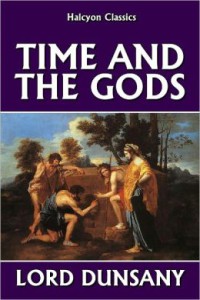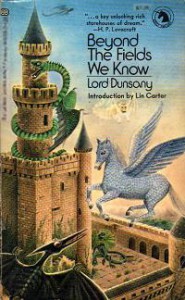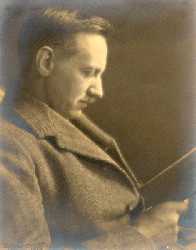Lord Dunsany Re-Read: Time and the Gods, Part 8
 Bill Ward and I are continuing our Lord Dunsany re-read with the next two stories published in the original Time and the Gods (not the omnibus). You can find a free copy of the book here and join in the discussion. Our rating system is pretty simple. One star is a standout, and two stars is truly notable. Most of Lord Dunsany’s fantasy work is already fairly remarkable, so even a “no star” story on this scale may be worth a look. This week we read “The South Wind” and “The Land of Time.”
Bill Ward and I are continuing our Lord Dunsany re-read with the next two stories published in the original Time and the Gods (not the omnibus). You can find a free copy of the book here and join in the discussion. Our rating system is pretty simple. One star is a standout, and two stars is truly notable. Most of Lord Dunsany’s fantasy work is already fairly remarkable, so even a “no star” story on this scale may be worth a look. This week we read “The South Wind” and “The Land of Time.”
 Howard: This week’s first story was another reminder of just how wonderful Lord Dunsany could be. I awarded one star to “The South Wind.” What a dark and fabulous little origin story for the lonely South Wind, brimming over with all the casual use of wonderful imagery and ideas that is Lord Dunsany at his best.
Howard: This week’s first story was another reminder of just how wonderful Lord Dunsany could be. I awarded one star to “The South Wind.” What a dark and fabulous little origin story for the lonely South Wind, brimming over with all the casual use of wonderful imagery and ideas that is Lord Dunsany at his best.
Bill: I would give both stories a star, maybe a half star for “The Land of Time.” “The South Wind” edges that out for me as well. A great concept, the idea of the lonely, ever hungry South Wind being the tormented soul of a man punished by the gods for learning that they are not all powerful. This story, and the game between Fate and Chance, hint at the eventual end of the gods, something that ties back in with the earliest stories.
Howard: “The Land of Time” starts strong and shows us all sorts of wonderful imagery. Once it really gets going, though, any long time reader of Lord Dunsany can see where it’s headed and it’s just a matter of reading along to watch it happen. We’ve read several of these “king leads armies on futile pursuit and it ends up in DOOM” tales and I suppose there may be others in the Dunsany catalog as well. Again I’m wondering if I’m just too jaded to appreciate this one as much and if I would love it if I came upon it never having read Dunsany before.
Bill: “The Land of Time” prefigures “Carcassone” especially and a few other Dunsanian quest stories. Here again is Dunsany’s great theme, but it is literally a war against time that is of concern to our protagonist King, rather than just the subtext of the tale. The King’s earliest exposure to the ravages of time (disused temple, old people, etc) is very reminiscent of the Buddhist legend where the sheltered prince Siddhartha, the future Buddha, comes into contact with the suffering of the world for the first time. The army throwing itself against the ramparts of the city of time, only to age into infirmity before they get there, and then, of course, to find there home changed completely by time when they return, are the predictable but nonetheless narratively satisfying results of the quest.

0 Comments